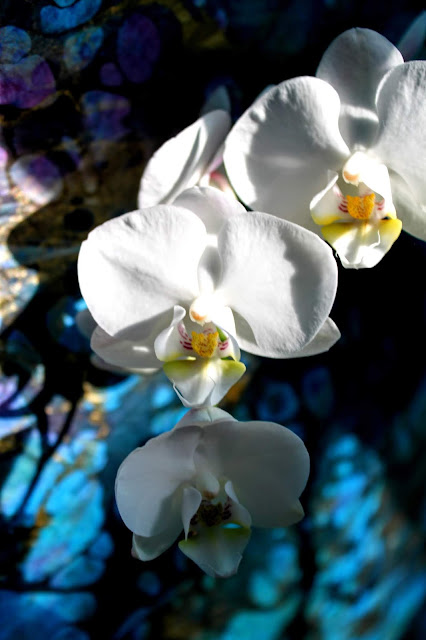Fifty years ago today, July 20th, 1969, two human beings on board the lunar module, Eagle, landed on the Moon. Six hours and 39 minutes later, on July 21st, Neil Armstrong, Commander of the Apollo 11 Mission, would step out onto the moon's surface, and into history, becoming the first person to walk on the moon. He made the profound observation, "one small step for man, one giant leap for mankind".
The historic, life-as-we-knew-it-would-never-be-the-same events were transmitted to earth in blurry, black and white images, watched by an estimated 650-million television viewers around the world...but not by me. The night of the moonlanding, my 12 year old girlfriends and I were hanging out on a gravel playground at Sperling Avenue Elementary School in North Burnaby, fascinated by an ant hill in the making. It was a balmy Summer night, and still light out. I glanced up at the moon, did the pre-teen eye roll, and sarcastically said, "what took 'em so long?" I could smack myself!
I am grateful that my pre-teen studied ennui gave way to a grown up sense of awe. There's so much to discover, from the tiniest nanoparticle, to distant galaxies - and it's all fascinating!
The footprints left behind, are still there. The moon has no atmosphere, so there's no wind or water to erode the footprints away. There are no volcanoes, either. There are meteor showers, and there is the rare possibility of a meteor striking the moon's surface, just where the footprints are located, destroying them. There are also solar winds, which move particles very slowly over the surface of the moon. Future astronauts and lunar tourists will have to tread carefully, so as not to destroy the footprints, and efforts are afoot to preserve and protect the area of the first moon landing.
There is another footprint mankind has left behind...the ugly kind. Two hundred tonnes of space debris and human waste from five decades of lunar exploration, litters the moon. The crashed spacecraft, robots, research equipment, good luck coins and earthly memorabilia, were left behind by American, Soviet, European, Chinese, Japanese, and Indian missions. Just as they've done on Mount Everest, human beings have scarred the pristine landscape.
We have a multitude of crises on planet Earth: hunger, disease, pollution, corruption. It is often said, "we can get a man on the moon, but we can't...(fill in the blank)". It is also said that the technology and know how are there, or can be created to meet the need; what's lacking is vision, and will...and one small step...
In 1961, when US President, John F. Kennedy addressed Congress, he boldly announced his intention to do what had never been done before, "I believe that this nation should commit itself to achieving the goal, before this decade is out, of landing a man on the Moon and returning him safely to the Earth." Kennedy admitted, "no single space project in this period will be more impressive to mankind, or more important for the long-range exploration of space; and none will be so difficult or expensive to accomplish." In unifying his nation, he added, "in a very real sense, it will not be one man going to the Moon - if we make this judgement affirmatively, it will be an entire nation. For all of us must work to put him there."
In less than a decade, man walked on the Moon, proving that anything is possible, when there is a will and commitment to make it happen.
In 1961, when US President, John F. Kennedy addressed Congress, he boldly announced his intention to do what had never been done before, "I believe that this nation should commit itself to achieving the goal, before this decade is out, of landing a man on the Moon and returning him safely to the Earth." Kennedy admitted, "no single space project in this period will be more impressive to mankind, or more important for the long-range exploration of space; and none will be so difficult or expensive to accomplish." In unifying his nation, he added, "in a very real sense, it will not be one man going to the Moon - if we make this judgement affirmatively, it will be an entire nation. For all of us must work to put him there."
In less than a decade, man walked on the Moon, proving that anything is possible, when there is a will and commitment to make it happen.





No comments:
Post a Comment